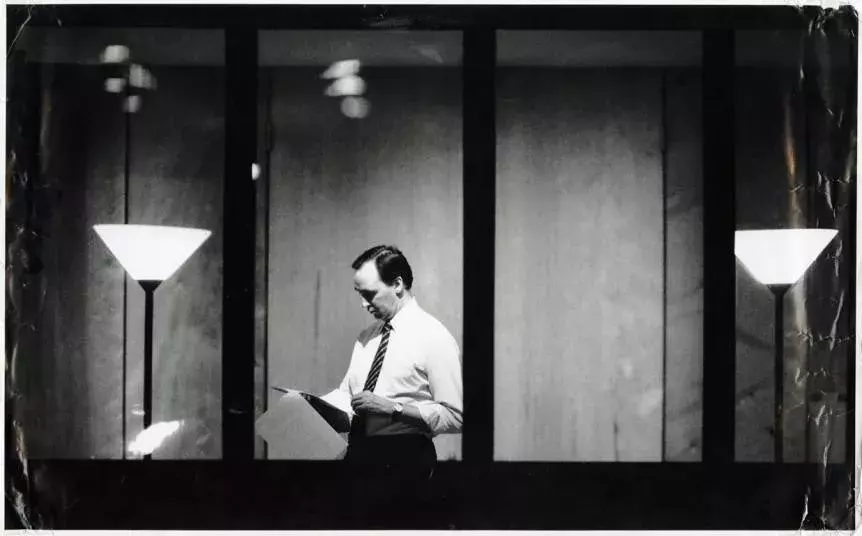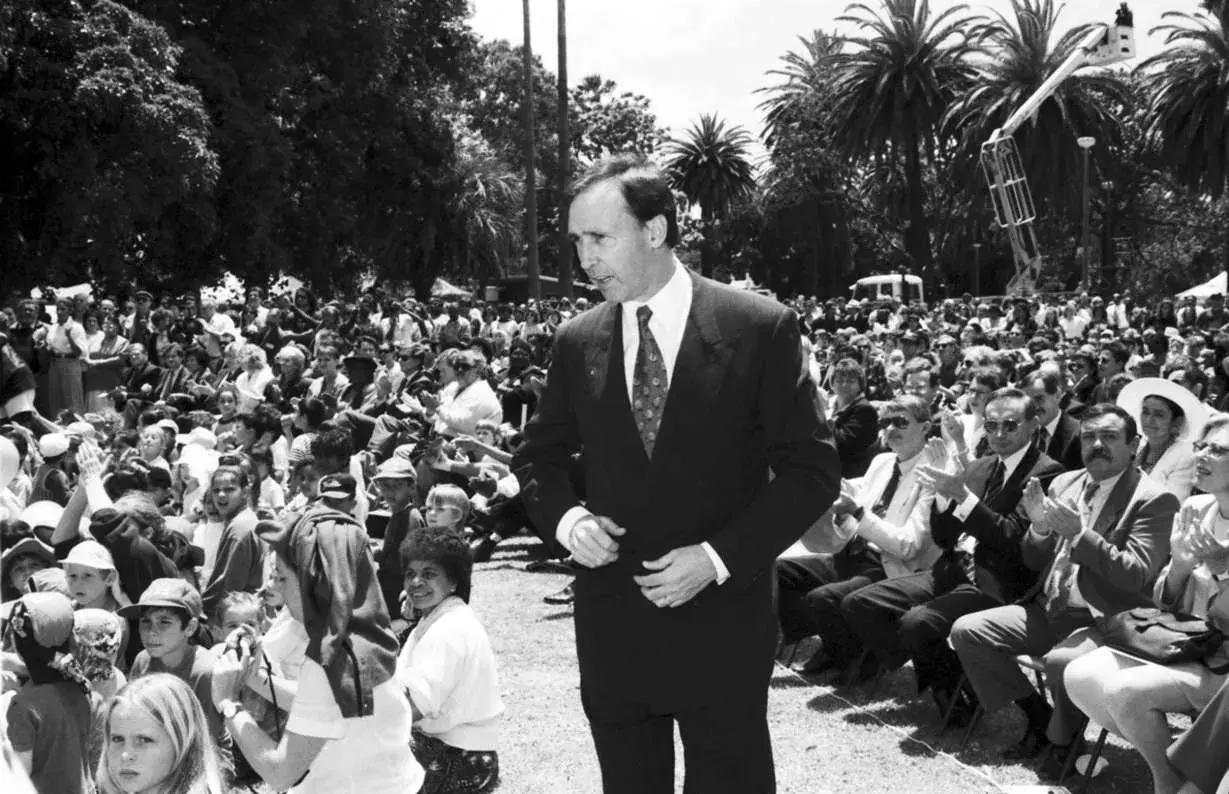PAUL KEATING
Paul Keating became Australia's 24th prime minister after defeating Bob Hawke in a leadership ballot in the Labor Party.
18 January 1944
Sydney, New South Wales
Annita Keating
Australian Labor Party
Photo: News Ltd/Newspix
About
Paul Keating was a political gladiator and reflective ‘big picture’ man. For some, Keating was defined by his arrogance and vitriol. For others he was an inspirational figure, who was willing to challenge orthodoxy.

Photo: Peter Morris/Fairfax
Keating grew up in the Sydney suburb of Bankstown, and his father was a boilermaker and union official. He left De La Salle College to start work at 15 years of age for the Sydney County Council. At the same time, his father began his induction into the Labor Party, starting at the Bankstown branch. He met Jack Lang, controversial former premier of NSW, who became a mentor. In 1966, Keating became president of the Sydney Labor Youth Council and involved in union politics.
He gained preselection for the seat of Blaxland in October 1968 and won it for Labor at the 1969 election. Keating became the Minister for the Northern Territory for a period of three weeks from October 1975. He was one of the few Labor members to hold his seat at the 1975 election. In 1979 he became the youngest president of the Labor Party in New South Wales.
After Labor returned to power in 1983, Keating became Treasurer in the Hawke government. He worked closely with Hawke and together they undertook an ambitious program of deregulating the Australian economy. With typical bravado, Keating claimed ‘he could play the economy like a violin’.
Keating became prime minister in December 1991 after challenging Hawke a second time for the leadership. He lost office at the 1996 election, held responsible by the public for, as he put it, ‘the recession we had to have’. In the end, instead of the Keating government's reforms, the voters were more focused on rising interest rates and unemployment.
MILESTONES
Superannuation Guarantee (Administration) Act
The Superannuation Guarantee Act requires employers to make contributions on behalf of their employees to a complying super fund, with contributions increasing over the following decade from 3% to 9%.
Mabo case
The Mabo case decision is handed down by the High Court on 3 June 1992, ten years after the case began. It leads to the Native Title Act in 1993 which enables Indigenous Australians to claim rights to certain land because of their traditional laws and customs.
Somalian involvement
Australian personnel arrive in Somalia on 14 September 1992 as part of a United Nations peacekeeping force with the aim of minimising the impact of civil war and famine in the country.
Redfern Speech
On 10 December 1992 Keating delivers the Redfern speech that acknowledges profound injustice and disadvantage suffered by Australia’s Indigenous people.
Endangered Species Protection Act
The Endangered Species Protection Act is passed on 21 December 1992 providing for the protection of endangered species and the establishment of ecological communities.
Mandela becomes President of South Africa
Nelson Mandela becomes President of South Africa after the first post-apartheid election on 1 January 1994. The Australian government had played an active role in the international sanctions policies against the apartheid regime.
Creative Nation
On 18 October 1994 the Creative Nation policy is announced. The program increases financial support for the arts and links it more directly to national economic prosperity.
Transition to an Australian republic
The timetable to establish a republic by 2001 is announced on 7 June 1995 in response to the recommendations of the Republic Advisory Committee.
William Deane appointed Governor-General
Sir William Deane, former High Court judge, is appointed as Australia’s 22nd Governor-General on 16 February 1996.
360° VIEW
Parliament
Keating used parliament as the arena to showcase his political mastery and rally his side. In Question Time, Keating deployed witty and belligerent insults with the aim of dominating opponents. Members of the opposition were at various times referred to as 'brain-damaged loopy criminals' and 'stupid mindless dullards'.
John Hewson’s performance as Liberal leader was described by Keating as ‘like being flogged with a warm lettuce’. In February 1992, Keating released the One Nation economic plan that included income tax cuts and the promise to create 800,000 new jobs to combat rising unemployment.
The Australian National Training Act was passed to provide for a youth training wage and there was further superannuation measures, including increased contributions by employers. After an unexpected win in the March 1993 election, Keating proposed a republic which he hoped would be in place for the centenary of Federation in 2001.
In June 1993, the Native Title Bill aimed to balance the rights of Indigenous Australians to native title with the need to protect pastoral and mining operations. Keating played a major role in pushing for the expansion of the Asia-Pacific Economic Forum. In December 1995, the Keating government signed a bilateral security agreement with Indonesia, following months of secret negotiations.

Photo: Pickett/Fairfax
Highlights
- Paul Keating
PM Transcripts, Department of the Prime Minister and Cabinet
- Paul Keating
PM Transcripts, Department of the Prime Minister and Cabinet
- Paul Keating
PM Transcripts, Department of the Prime Minister and Cabinet
- Paul Keating
PM Transcripts, Department of the Prime Minister and Cabinet
- Paul Keating
PM Transcripts, Department of the Prime Minister and Cabinet

